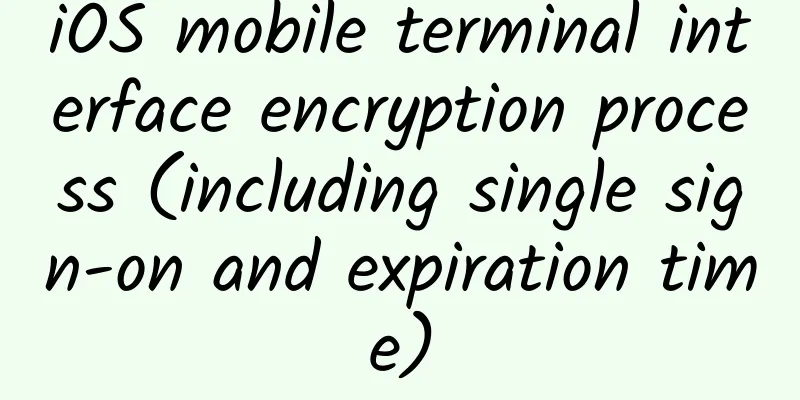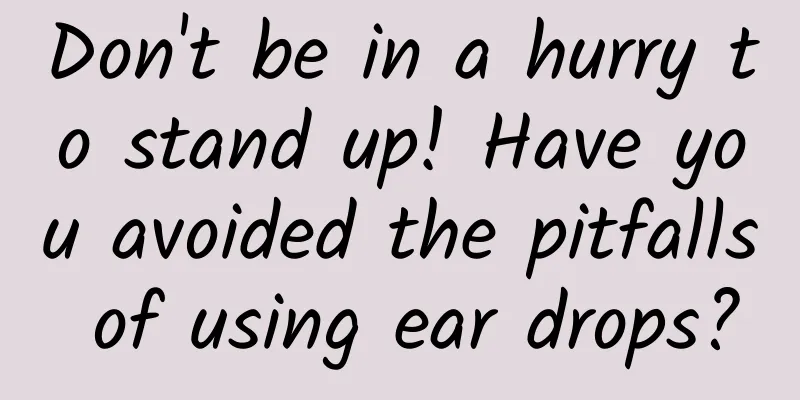These 21 points almost summarize all the problems faced by operators. Many people suddenly realize the truth after reading them!

|
Some time ago, I had in-depth communication and understanding with my colleagues in the department and many other partners in operations , and found that everyone generally has some common problems in the operation process. Therefore, today's article summarizes and lists these common problems one by one, so that everyone can compare their own situation to see if there are corresponding problems, so that they can be discovered in time and make targeted changes. I have summarized 21 questions. When you are reading, you can think back and see which questions you have been asked. 1. After operating for a period of time, I always find that there is no accumulation and no experience to summarize. The same problem will appear again in the next stage of operation. 2. Operational work is fragmented and disorganized. Various things need to be handled at the same time, and the phased goals and key tasks are not clear. I often feel like I'm extremely busy, but when I write weekly and monthly reports, I find there is nothing to write. 3. When getting a new project, they start thinking about specific operational strategies right from the start, without having an overall control over the project or a systematic way of thinking. 4. When doing many things, the results often deviate from expectations. When you want A to become B, you cannot control the development of things. 5. I feel like I am working very hard, but I can’t produce any results. I often spend too much time on one thing, which results in many things that were originally planned not being implemented. 6. There is no time estimate for the tasks to be done every day and every week, and there is no comparison between the actual completion time and the estimated time. 7. After working in operations for a period of time, I found that there were not many documents saved on the computer, and no operational tool forms were retained. 8. When writing an operation plan, you often rack your brains for ideas and try to apply various templates, or you find that you don’t know how to continue writing halfway through, and you have no ideas at all. Then you start to worry about the content of the first half. It may take a week or even longer from the beginning of writing to the finalization of the plan. 9. I often have no idea about operational strategies and creative activities, but my boss or other people are always clear-headed and can quickly and rationally come up with many feasible strategies. It is only then that I suddenly realize the truth. 10. Treating operational work as earthquake relief work, always being forced to deal with various operational issues passively. 11. We have organized more than a dozen activities and initiated dozens of discussions, but we still haven’t formed a systematic process and ideas. 12. After posting more than 100 PGC posts and dozens of public account articles, I still have to look for materials everywhere every day and rack my brains for what type of posts or articles to produce. 13. Communication with users is still limited to random chatting. I have talked to many people but it feels like I haven’t discussed anything! 14. When it comes to user needs research, people only think of questionnaires and interviews. They have never browsed the WeChat Moments or QQ Spaces of the core users of the product, nor have they tracked their product usage behavior. They are still unclear about their living conditions, interests, preferences, and needs, and they don’t even know their basic information. 15. After an activity is launched or the promotion channels are expanded, people think that most of the work is done. Without setting phased goals and process control, operational work becomes running work. 16. After more than a year of operation, I have never had a detailed understanding of the competitive products or my understanding of the competitive products is only limited to the product names. 17. You only look at the data when it’s time to write the weekly report. When you open the background data report, you are confused and can’t figure out what’s going on? Don’t know where to start with data analysis ? 18. When making operational summaries, subjective conjectures such as “What seems to have been done? What seems to have happened? So it may have caused an impact” often occur when faced with abnormal data. 19. Message PUSH only focuses on the evaluation of a single effect, but fails to make a complete record and longitudinal analysis and summary of historical message PUSH. 20. The entire operation status is that operations drive data, rather than data drives operations. 21. Operational work is always transaction-oriented rather than goal-oriented, so basically every week you have to repeat the same seemingly independent tasks. After Brother Chao listed these common problems, he sent them to other friends for testing. As a result, many people reported that most or all of them were affected. I don’t know if you have the same feeling after reading this article. If you find that you have not encountered any of the above problems after reading it, then congratulations, you have entered the ranks of high-level operations and you must be an experienced driver. But I believe that many of my colleagues, especially those who are new to operations or have no more than three years of operations experience, will have the above problems to a greater or lesser extent. After reading this, I guess many of you are eager to read on to see if there are any solutions to these 21 problems? If you think so, then you have another problem, which is the lack of ability to summarize, analyse and classify problems. When faced with these 21 problems, your first priority is not to rush to find solutions to these problems, but to analyze and summarize these 21 problems, because I have only listed the above problems and have not considered the order, priority, importance and urgency of the problems at all. In fact, after reading the above 21 questions, there is no need to worry even if you are all hit, because the above 21 questions only reflect three types of problems, that is, the thinking level (goal-oriented awareness, thinking decomposition, logical sorting, induction and summary, reasoning and deduction), the rhythm level of operation (goals, work coordination and process control) and the refinement level (data, tool, table, standardization). We can reclassify the above 21 questions as follows: Category 1: Thinking level (goal-oriented awareness, thinking breakdown, logical sorting, induction and summary, reasoning and deduction) ●After operating for a period of time, I always find that there is no accumulation, no experience to summarize, and the same problems will appear again in the next stage of operation (summary) ● After holding dozens of events and initiating dozens of discussion topics, we still haven’t formed a systematic process and ideas (summarizing and summarizing, and precipitating methodology) ● When getting a new project, they start thinking about specific operational strategies right from the start, without having a holistic view of the project and a systematic way of thinking (systematic thinking) ● I feel like I am working very hard, but I can’t produce any results, so I spend too much time on one thing, which results in many things that were originally planned not being advanced (there is something wrong with the way I think about solving problems) ● When writing an operation plan, you often rack your brains for ideas and try to use various templates. Or you may find that you don’t know how to continue writing halfway through and you have no ideas at all. Then you begin to doubt the first half of the plan. It may take a week or even longer from the beginning of writing to the finalization of the plan. (Dismantling based on the goal) ● Often have no idea about operation strategy and activity creativity, and begin to doubt their own thinking agility, but leaders or others are always able to be clear-headed, orderly and quickly provide a number of feasible strategies, and only then do they suddenly realize (logical reasoning ability, thinking deduction method) ● Communication with users is still limited to random chatting with users. It feels like I have talked to many people but at the same time, it feels like I have not discussed anything! (Unclear goals and objectives, communication skills) ●When it comes to user needs research, people only think of questionnaires and interviews. They have never browsed the WeChat Moments or QQ Spaces of the core users of the product, nor have they tracked their product usage behavior. They are still unclear about their living conditions, interests, preferences, and needs, and they don’t even know their basic information. (Thinking and cognitive level, systematic thinking) ● After more than a year of operation, I have never learned about the competitive products in detail or my understanding of competitive products only stays at the product name (at the level of thinking consciousness) ● Task-oriented rather than goal-oriented, so basically every week you repeat the same seemingly independent tasks. (Thinking and conscious level) The second category: the rhythm of operations (goals, work coordination and process control) ● The operation work is fragmented and disorganized, various things are handled at the same time, and the phased goals and key tasks are not clear. I often feel like I'm extremely busy, but when I write weekly and monthly reports, I find there is nothing to write. (Work coordination, priorities, and rhythm of operations) ● No time estimate for daily and weekly tasks, no comparison between actual completion time and estimated time (overall arrangement of work) ● When doing many things, the results often deviate from expectations. I want A to become B, but I cannot control the development of things (goal setting and control) ● Treating operational work as earthquake relief work, always being forced to deal with various operational issues passively. ● After an activity is launched or the channels are expanded through promotion, people think that most of the work is done. Without setting phased goals and controlling the process, operational work becomes running work. (Goal setting and stage goal breakdown, real-time effect management, evaluation and optimization) The third category: refinement level (data, tool, table, standardization) ● I have posted more than 100 PGC posts and dozens of public account articles, but I still have to look for materials and rack my brains every day to think about what type of posts or articles to publish (optimizing the source table) ● When it’s time to write the weekly report, you only remember to look at the data. When you open the background data report, you are confused and can’t figure out what’s going on? Don’t know where to start with data analysis? (Data analysis awareness and analysis ideas) ● When making operational summaries, subjective conjectures such as “What seems to have been done? What seems to have happened? So it may have caused an impact” often occur when faced with abnormal data. ● Message PUSH only focuses on the evaluation of a single effect, but fails to make a complete record and longitudinal analysis and summary of historical message PUSH. ● The entire operation status is that operations drive data, not data drives operations ● After working in operations for a while, I found that there were not many documents saved on the computer, and no operational tool forms were retained. In fact, Brother Chao mentioned in his previous article "Thinking + sense of rhythm + refinement, see how excellent operations widen the gap with ordinary operations?" 》 gave a general analysis and explanation of these three types of problems, and these three types are the gaps between ordinary operations and advanced operations. Therefore, for many partners who have just entered the operation or have relatively lack of operation experience, the goal of becoming a senior operator is very clear, which is to solve the above three types of problems (21 small problems). The key to solving the problems listed above lies in the thinking level. Everyone must consciously cultivate their own operational thinking awareness and habits during the operation process. The cultivation of operational thinking awareness and habits requires a process. In normal times, we can consciously cultivate thinking from the following aspects: 1. Cultivate a goal-oriented consciousness: When doing anything, the first thing to think about is the background and purpose of this thing, and what kind of goals should we set around the purpose? How to break down your goals. All subsequent work must be carried out around the achievement of this goal, and work that can effectively promote the achievement of the goal must be regarded as key work (except for administratively mandated work). 2. Read more: Reading is the best way to cultivate thinking. The thinking mode of a person who has read 0 books and that of a person who has read more than 30 books will definitely be very different. Read more books on thinking strategies, such as "The Pyramid Principle" and "The McKinsey Method". 3. Master some thinking methods and tools: such as 5W2H, SOWT analysis, PDCA cycle, A AR RR model, WBS work structure decomposition method, etc., and use more mind mapping tools like Xmind and Visio process tools. 4. Summarize and think: You must learn to summarize and think in life and work, review and summarize the results of phased work and consolidate the methodology, and think more about the operational logic in life. 5. Communicate more with outstanding people: seize the opportunity to learn from leaders, learn to regularly find the difference between your own way of thinking and that of leaders, communicate more with peers or people who are better than you, and when communicating with others, try to understand their way of thinking and the angles from which they think about problems. Mobile application product promotion service: APP promotion service Qinggua Media advertising The author of this article @超哥Jason is compiled and published by (Qinggua Media). Please indicate the author information and source when reprinting! |
<<: WeChat mini program dividends, can mini programs adopt a dividend model?
>>: How to cancel the mini program authorized by Alipay?
Recommend
A brief introduction to MVP's practical exercises to make the code structure simpler~
Preface To be honest, I haven't updated my bl...
How to create an advertisement that touches people’s hearts? Look here
We all know that marketing is a series of activit...
Understand futures first, then you will know how Bank of China lost money!
This article was first published by Hunzhi (WeCha...
What is LSD? It once made Steve Jobs addicted
Lysergic acid diethylamide, also known as "l...
Hackers vs. smart cars: Count the models that failed
Cars are no longer just a means of transportation...
How should product operations build a user recall system?
A product is like a traffic pool, with fresh bloo...
China's first solar-integrated satellite will be launched in October. Compared with the US Parker spacecraft, which one is stronger?
In the past 10 years, China's space industry ...
The Mozi Sky Survey Telescope discovered the first batch of near-Earth asteroids. Which asteroid in the solar system is the most dangerous?
Author: Li Mingtao, Researcher at the National Sp...
Apple closes iOS 8.1.2 verification to block jailbreakers
Apple officially closed the iOS 8.1.2 verificatio...
Is it a good thing to not gain weight? Let us help you understand the truth about obesity
Obesity may affect your good looks Or cause unexp...
Tesla's real rival is here: Audi will launch a pure electric sports car
Although there are companies like Tesla that have...
Gasgoo: In the first half of 2022, the sales volume of 10 multinational automakers in China was 1.47 million.
According to data from the China Association of A...
When increasing user growth, how can we retain new users?
Retention of new users is a very important part o...
The crisis is coming! Social media has all collapsed, and marketing is failing
Over the past few years, I have been watching and...
Is it true that village cadres will be recruited in 2022? Attached is the latest policy for village cadres in the Central Government’s Document No. 1 of 2022!
As we all know, village cadres are at the forefro...









